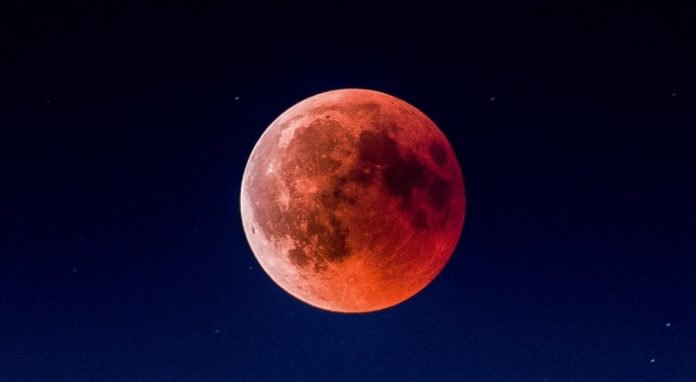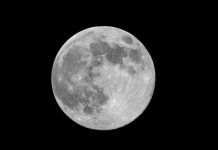
Did you know that people have been talking about the effects of the full moon on human behavior for centuries?
Now, psychiatrists at Indiana University School of Medicine have found that deaths by suicide increase during the full moon.
This is an important discovery because it can help us better understand the risk factors for suicide and possibly prevent suicides from happening.
The research team analyzed data from the Marion County coroner’s office in Indiana about suicides that took place from 2012-2016.
They found that deaths by suicide significantly increased during the week of the full moon, with people over age 55 showing an even higher increase.
They also looked at the time of day and months that suicides took place, finding 3 to 4 p.m. and the month of September to be peak times for suicides.
The team says high-risk patients should possibly be followed more closely the week of the full moon, during late afternoons, and perhaps during the month of September.
The research team previously developed blood biomarker tests for other mental health conditions such as anxiety, depression, and post-traumatic stress disorder, as well as pain.
Using blood samples previously taken by the coroner, the team was able to identify which biomarkers were present in people who died by suicide during the full moon, peak hour of the day, and peak month of the year.
The biomarkers that were predictive of death by suicide during these periods appeared to be genes that regulate the body’s own internal clock, known as the circadian clock.
The team said that the increased light from the full moon could be what leads to the increase in suicides during that period.
The ambient light plays a major role in the body’s circadian rhythm, which is the natural 24-hour cycle our bodies follow to regulate when we are asleep and when we are awake.
Moonlight could be impacting people at a time when it should be darker.
The other two peak periods for suicides, 3 to 4 p.m. and the month of September, could be related to stressors throughout the day and the end of summer vacations, respectively.
The team hopes to study if exposure to screens at night contributes to increased suicidality in people, especially younger people.
Overall, this study’s findings are important because they can help us identify high-risk periods for suicide and develop better prevention strategies.
If you or someone you know is struggling with thoughts of suicide, please reach out for help.
How to prevent suicide
Preventing suicide is incredibly important, and there are many ways to help reduce the risk of suicide. Here are some things that can help prevent suicide:
Be aware of warning signs: Learn to recognize the warning signs of suicide, such as talking about wanting to die or feeling hopeless, withdrawing from friends and family, or engaging in risky behaviors.
Stay connected: Make sure you stay connected with loved ones, friends, and colleagues. Reach out to them regularly and make time for social activities.
Seek help: If you are struggling with thoughts of suicide or know someone who is, seek help from a mental health professional or a suicide prevention hotline.
Learn coping skills: Develop healthy coping skills, such as exercise, meditation, and journaling, to help manage stress and emotions.
Reduce access to means: If you or someone you know is at risk of suicide, reduce access to means such as firearms, medication, and other items that can be used for self-harm.
Be supportive: If someone you know is struggling with suicidal thoughts, be supportive and listen without judgment. Encourage them to seek professional help.
Educate yourself: Learn more about suicide prevention and mental health. This can help you identify risk factors and warning signs, and give you the tools to help others who may be struggling.
Remember, suicide is preventable, and there is help available. If you or someone you know is struggling with thoughts of suicide, please reach out for help.
If you care about depression, please read studies about how dairy foods may influence depression risk, and B vitamins could help prevent depression and anxiety.
For more information about mental health, please see recent studies about 5 signs of depression you shouldn’t ignore, and extra-virgin olive oil could reduce depression symptoms.
The study was conducted by R. Bhagar et al and published in Discover Mental Health.
Copyright © 2023 Knowridge Science Report. All rights reserved.



